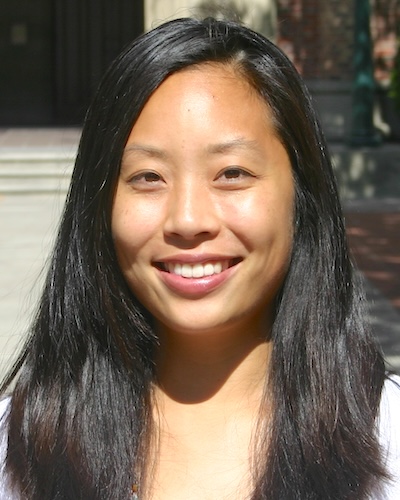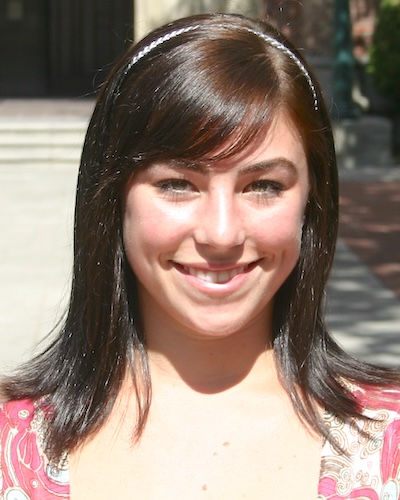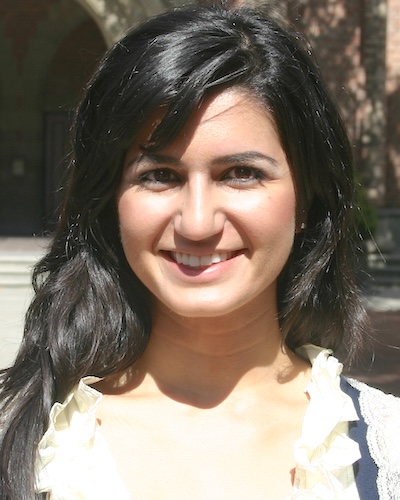Student Blog
Getting Involved

AOTA National Conference ⟩
April 22, 2011, by Yao
Getting Involved
A quick journey from a project at USC all the way to a national conference with over 50 other schools and countless practitioners.
Just last week I was in Philadelphia presenting a poster on a project that I had the opportunity to develop in our OT skills 3 class, but now I am back into the grind, with 3 weeks left until graduation. For the first time during my graduate school experience, I am finally beginning to understand and really feel how invaluable these past two years at USC have been.
It’s been a process, really. My road to realizing the opportunities that the occupational therapy community at USC has to offer started last June, when a classmate and I decided to take the skills 3 class project that we started in January 2010 and engage in an independent study elective with a faculty advisor. The process has been trying, and I was re-acquainted with the importance of time management. But all of our hard work culminated last week: In addition to receiving constant mentorship from various faculty members and access to departmental resources (e.g., poster production), we were both chosen to receive two of this year’s departmental scholarships to travel and present in Philadelphia during the national occupational therapy conference. Then came the day that we had to leave for Philadelphia, both faculty and students had talked about the hope and encouragement that everyone feels at the conference. This was going to be the first time that I stepped out into the OT world with more than 50 other OT schools gathering the knowledge that our peers and tenured members had to offer.
Seeing the amount of OTs in one place and seeing the welcome signs everywhere in Philadelphia with AOTA’s brand all over was inspiring. Throughout the conference we received the opportunity to talk and mingle with our fellow students and leaders in the profession. Never in one place have I seen so many people together with the same background working towards the same goal, the Centennial Vision. All of our two years of schooling has come to this; it has been to prepare us to work with and discuss our ideas and hopes for the future of our profession. We were taught to find resources within our own profession, find ways to access resources outside, and more importantly, to think beyond what is happening now. AOTA allowed for everyone to come together and discuss ideas, and with that opportunity I realized what USC has taught us. They have bestowed on us the ability to analyze a situation, organize, formulate, and articulate our ideas. But most importantly, they have taught us to not be afraid to begin a discussion that may lead to further action and not be afraid to collaborate. USC has educated us to appreciate OT for all it is and has helped us mold how we want to become as a practitioner and a leader in the profession. In the words of Dr. Clark we are a pixel in the whole picture that we know of OT, working together with other professionals across the nation to make OT a clearer picture for everyone.
⋯

Engage ⟩
March 27, 2011, by Austen
Community Getting Involved
Every Thursday evening, the OT house hosts a weekly program called Engage. We pick up kids in the neighborhood, bring them back to the OT House, help them with their homework, engage in a group activity, eat dinner together, then take the kids home. It is such a fun and rewarding experience right down the hall from me!
I have always loved giving back to the community. Feeling part of it, learning from it, improving it, making a difference. Engage has been my weekly contribution. However, it is not just to the community, but to the lives of those children. I love being part of the group of OT students who serve as mentors and friends, promoting the importance of doing well in school, setting goals, and working hard. I truly enjoy being a role model and setting a positive example for them to look up to. In this day and age, there are so many distractions that can get kids in trouble. Engage is a way to help keep focus and priorities among our youth, keeping them excited about school and their futures.
My favorite activity we have done so far was planting vegetables and herbs in the large planting boxes on our patio at the OT House. The kids had a great time organizing the planters, spacing out the seeds, placing the seeds in the soil, and labeling each row. As the weeks have gone by, the veggies and herbs have grown so much that the kids get to see the results of something they did together. That was a great activity, promoting team work, collaboration, community building, taking turns, and sustainability.
As the school year starts winding down, we have just a few weeks left of Engage. Since I will not be here next year, it will be very sad to have to say goodbye to the kids that come every week who I have developed relationships with. It has been such a joy watching them grow over this past year, and I know they will continue to grow up into wonderful people. I just hope they have gotten as much out of the program as I have.
⋯

The Program is Flying By! ⟩
January 3, 2011, by Helen
Classes Getting Involved What are OS/OT?
It feels like just yesterday I was in the application process for the master’s program, anxious to learn Occupational Therapy and to one day become a therapist!
As 2010 just came to an end, I cannot believe that I only have six months left of the master’s program. In the last year and a half, it is amazing how much information we have covered. The first year flew by, providing us with a foundation of knowledge about pediatric OT, OT in the field of physical disabilities, geriatric OT, and OT in the fields of psychosocial/mental health. This second year, we have focused on learning how to build a therapeutic relationship with our clients, improving our listening skills, and understanding the theory behind our practice. By focusing on learning the history of where our profession has been, what the current state of our profession is, and where our profession is going, we are able to more creatively think about our own areas of interest. By better understanding what there is a need for in our profession, ideas of advocacy, research, and leadership are emphasized.
As a result of having learned so much about health care access, the history of our profession within the medical model, and the progression of current research, I have an increased interest in political advocacy and occupational therapy. Last year, I chose to get involved with an organization called CAHPSA (the California Health Professional Student Alliance). Currently, we are a week away from hosting Lobby Day in Sacramento. On January 9th and 10th, 200-500 health professional students will be traveling to Sacramento to meet with assembly members and senators to discuss how Health Care Reform will impact our personal professions.
One of my favorite aspects of our program has been the emphasis on understanding the theory behind our practice and the value for being aware of our professional past, present, and future. This value for the history of our profession is what has inspired me most to impact the future of occupational therapy practice.
⋯

Interdisciplinary Communication ⟩
December 6, 2010, by Yao
Community Getting Involved What are OS/OT?
The importance of interdisciplinary communcation and engagement.
This past weekend Amanda and I were a part of an interdisciplinary health fair put on by Keck Medical School at one of the local high schools. It was a great opportunity to learn about the other members of a potential medical team and interact with the community.
One fact that I found fascinating was that although a lot of the participants were medical school students, pharmacy students, physician’s assistant students and physical therapy students, many weren’t really sure of what occupational therapists did and to what extent. On the same side we weren’t aware of the full breadth at which these groups also participated in patient care, so it turned out to be an amazing learning experience on both ends. It’s important to have more events that include the different members of a potential team.
I have to admit that Amanda and I had a hard time thinking of what to say when the other disciplines asked what exactly it was that we did as occupational therapists. It wasn’t because we weren’t sure, it was the fact that there were so many ways that occupational therapists went about treatments depending on the situation and patient. We weren’t sure how to give an in-depth understanding including all the different capacities at which and occupational therapist could work. Finally, we decided to use the sensory integration station that we had set up to help open up discussion about the role of occupational therapists. The station consisted of two large Tupperware containers, one full of black beans and the other with lentils. Buried inside each container were little miniature animals (Polly Pocket sized) and the goal was for the participant to find as many animals as possible with their eyes closed. Skills such as touch discrimination, stereognosis, maintaining attention, and standing balance were all used in this one activity. It helped the other professions understand that occupational therapists used meaningful activities and in this example of a pediatric client, play would be their meaningful occupation as a way to work on developing skills to help them engage more successfully with the environment. It was the most popular activity at the fair and gave us an opportunity to talk about occupational therapy and for the participants to understand through hands-on experience what occupational therapy can do. I’m so glad we had the opportunity to participate and get to know about all members of a potential interdisciplinary team and I’m looking forward to future mixer events.
⋯

What makes USC’s program unique? ⟩
November 8, 2010, by Helen
Community Fieldwork Getting Involved International What are OS/OT?
The professors at USC support your learning in every way possible.
In the past couple weeks, I have held information sessions at UC San Diego, UC Davis, Sacramento State, and UC Berkeley. I am constantly being asked why I chose USC’s program and what makes USC’s program unique. From holding these information sessions and meeting so many ambitious and passionate future applicants I have had the opportunity to reflect more on the profession of Occupational Therapy. I have also had time to reflect on how attending USC’s program has influenced my professional future and outlook about the profession. The faculty at USC has such immense confidence in their students and provide the support for their students to not only be great clinicians, but to be leaders in their profession. This investment in the students is what has made my learning experience as a graduate student so unique.
In the last year, I have been provided with the opportunity to attend Lobby Day in Sacramento, advocating for Universal Health Care. Additionally, I was given the opportunity to do an international fieldwork in Ghana. I have also had the opportunity to attend OTAC conference in Pasadena, AOTA conference in Florida, as well as the student conclave in Kentucky. Attending these events, networking with current practitioners and leaders in the field, and learning what direction research is moving towards, have intertwined to inspire me about my profession. I am so proud to be an Occupational Therapy student at USC and am so grateful for being able to attend a university where the faculty truly supports your learning. The professors and faculty hold a holistic view of their students, emphasizing that it is not only valuable to be an excellent student doing well academically, but it is equally valuable to gain practice experience, leadership experience, research experience, and to be knowledgeable about the theory behind practice. By valuing all these learning components, I have a strong sense of the history of my profession, where we stand currently in our health care system, and what needs to be done in the future. The field of Occupational Science was founded at USC, Jane Ayres was a professor at USC researching Sensory Integration techniques, Lifestyle Redesign was established at USC, and our dean Florence Clark is the president of the AOTA. So to answer the question of why I chose USC and why I feel USC is ranked so highly for our OT program, I feel that it is because all these elements combine to create passionate practitioners who think broadly about the field of Occupational Therapy.
⋯





